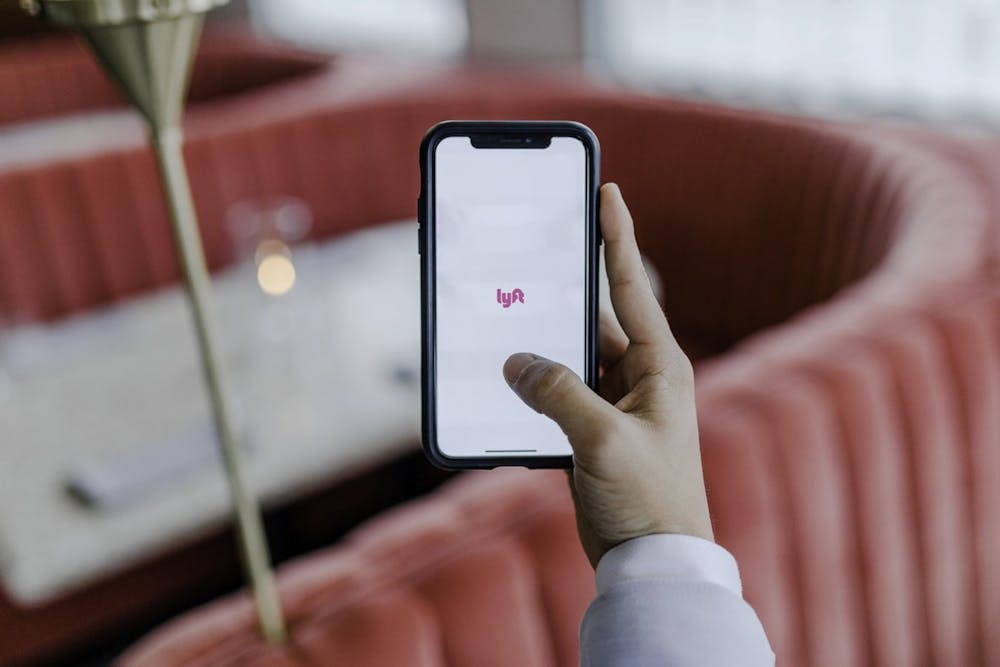A year’s worth of work for SGA and Auburn University’s Transportation Services will culminate with a new ride-sharing program.
Auburn’s new partnership with Lyft, a popular ride-sharing company, will provide late-night, reduced-cost rides to University students within a 4-mile radius.
To receive the reduction in price, students must get rides within the two University-designated areas and be dropped off within a 4-mile radius at their home.
If those conditions are met, students will receive up to a $10 reduction in price that will be covered by the University.
For example, if a ride costs $8, then the ride will be free to the student. However, if the ride is over $10, the student will receive a $10 reduction in price and pay the remainder, with the University covering the difference.
The first pick-up location is at the Tiger Transit hub located on Heisman Circle. That location will operate Monday through Friday from 8 to 10 p.m.
The second pick-up location is between South Gay Street and Wilmore Drive near Toomer’s Corner and will be in use Thursday through Saturday from 10 p.m. to 3 a.m.
The idea for the program was first introduced by Dane Block, who served as SGA president last year.
The program has since been spearheaded by SGA President Mary Margaret Turton and Julianne Lyn, executive vice president of initiatives, both of whom have continued the efforts to finalize the project.
Turton and Lyn said they have been working on solidifying this program for almost an entire calendar year.
While excited about this partnership, Turton urges safety and caution to students using the new ride-share program with Lyft.
“The whole point of this is getting students home safely, and with services such as Lyft, we just want to make sure everyone is doing everything they can to protect themselves and also their fellow students,” Turton said.
Turton also advises students to verify the name of the driver before getting inside the Lyft to ensure their safety, especially late at night.
Don Andrae, director of Auburn University’s Transportation Services, told The Plainsman that the University was considering partnering with other ride-sharing companies, such as Uber and another company based out of Memphis, Tennessee, but Lyft was considered the best option since it agreed to allow Transportation Services access to its analytics and data.
“At the end of the day, we want this program to be … what is best for students,” Andrae said.
It also helped that Lyft reportedly brought six workers to partnership meetings, while Uber only brought two, Andrae said.
This program will be, in essence, replacing the Tiger Ten late-night bus service, which gave students rides from Magnolia Avenue to other transit stops around Auburn on Fridays and Saturdays from 10:30 p.m. to 3 a.m.
“Tiger Ten would only take you to a Tiger Transit stop,” Andrae said. “[The Lyft program] is going to take you straight home.”
The University hopes that this partnership with Lyft will get students to their homes quicker and safer, Andrae said.
To make sure that’s executed, Transportation Services has tweaked the way Tiger Transit will run so that students can utilize the Lyft program and the Tiger Transit system as efficiently as possible.
That tweak affects service times on weekdays. Last year, Tiger Transit buses ran continuously from the early morning until 6 p.m and then did a more periodic run until 10 p.m.
Now, Tiger Transit buses will run continuously until 8 p.m., allowing students to use the Lyft program on weekdays from 8 to 10 p.m. when the buses are no longer running.
And the Tiger Ten service that ran on weekends — which was initiated in 2017 and had a declining amount of ridership, according to Andrae — was ended at the end of the fall 2019 semester.
“It’s our hope that this Lyft program will be a better service than Tiger Ten and be used more by students,” Andrae said.
In addition to hoping it’s safer and more convenient, the University is also betting on the Lyft program being a cheaper option than Tiger Ten, even while keeping in mind that the $10 discount will be covered by Auburn University’s Transportation Services.
“Our initial analysis is that the cost will be much lower than us running the Tiger Ten transit on Saturday night,” Andrae said.
According to Transportation Services, the Tiger Ten service was costing Auburn around $240,000 a year.
Students would have to ride 24,000 rides in the same time frame to match that cost — a number Andrae said they don’t expect to hit in one year.
There are also monthly limits to using the Auburn discount on Lyft. A student can get a $10 discount for a ride home on weekdays up to 25 times a month. The monthly limit for weekend discounts is 10.
The discount will only apply for students who are using the app to get home, according to Kelsey Prather, a communications and marketing specialist for Auburn University. For example, if a student is at a bar downtown and uses the app to ride back home, then the discount applies. But if a student is at a bar and uses Lyft to go to another bar, then the discount will not apply.
The University will be able to detect this by using the analytics that Lyft will provide to Transportation Services, Andrae said.
“We’ll have like a heat map and see where everyone is going, and I’ll be able to tell, ‘Well, that’s not a residence,’” Andrae said.
The $10 discount will not cover tips or incidental charges related to vehicle damage, according to Transportation Services.
As for the environmental impact of this new program, Andrae said it’s certainly more sustainable than the Tiger Ten service. He based this on the fact that few students used Tiger Ten, meaning there would be times when “four students would be the only ones on a bus” and the bus would be “sitting in place with the engine on and just idling,” Andrae said.
Andrae said that he doesn’t anticipate this program to impact traffic since ride-sharing services are already being used by many people in Auburn.
He expects the Lyft discount to be especially useful for international students who don’t have vehicles themselves.
The Lyft program is technically a one-year trial program, but Andrae said he expects to only build on top of what’s already set in place once they reevaluate at the end of fall 2020.
“We’ll definitely keep what we currently have,” he said. “It’s just a question of what we add to it.”
He emphasized why they started planning this last year.
“We want to make sure students get a safe ride home,” he said. “And that students downtown can get back safely.”
Do you like this story? The Plainsman doesn't accept money from tuition or student fees, and we don't charge a subscription fee. But you can donate to support The Plainsman.

Eduardo Medina, senior in journalism, is the editor-in-chief of The Auburn Plainsman.





